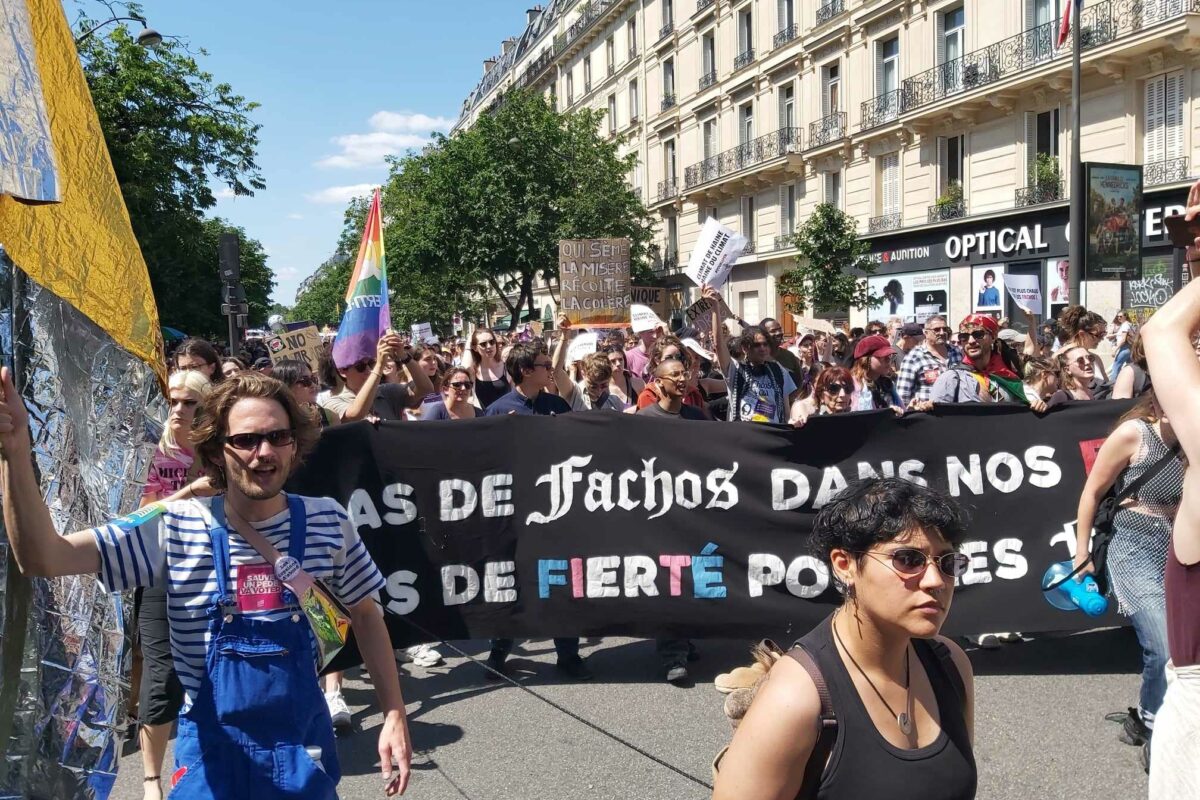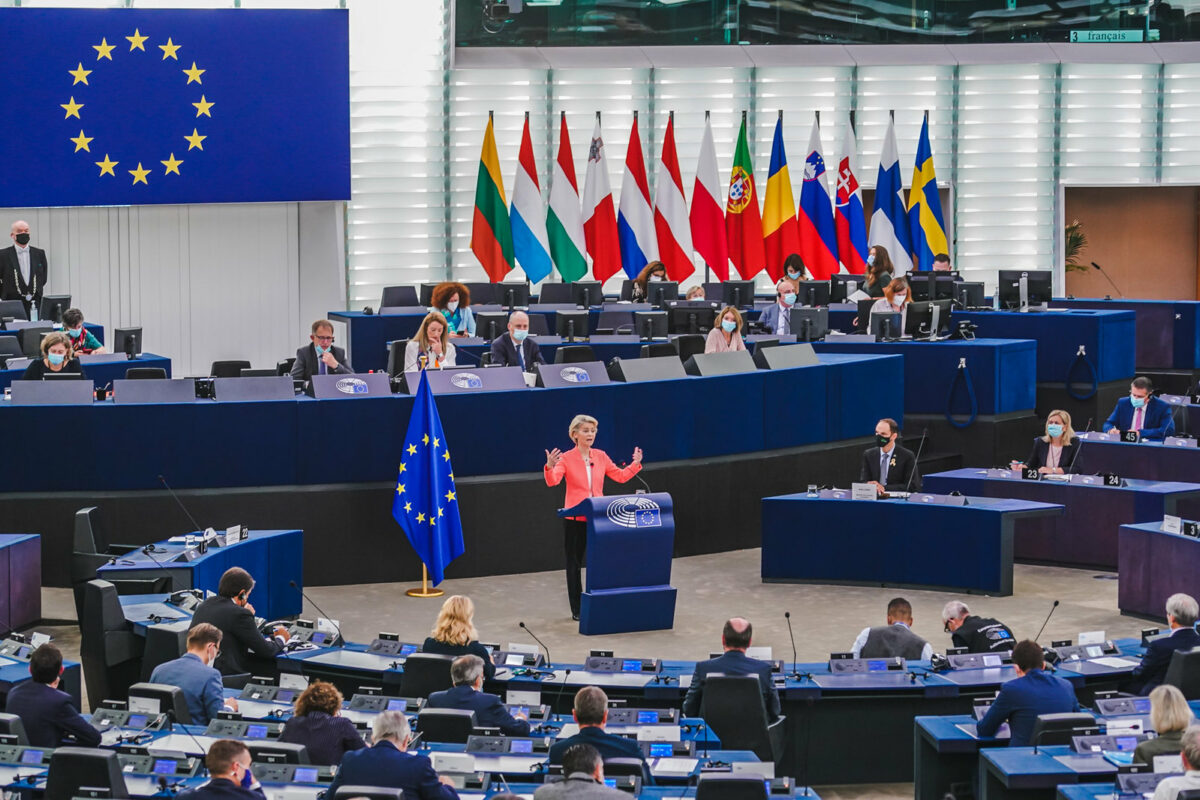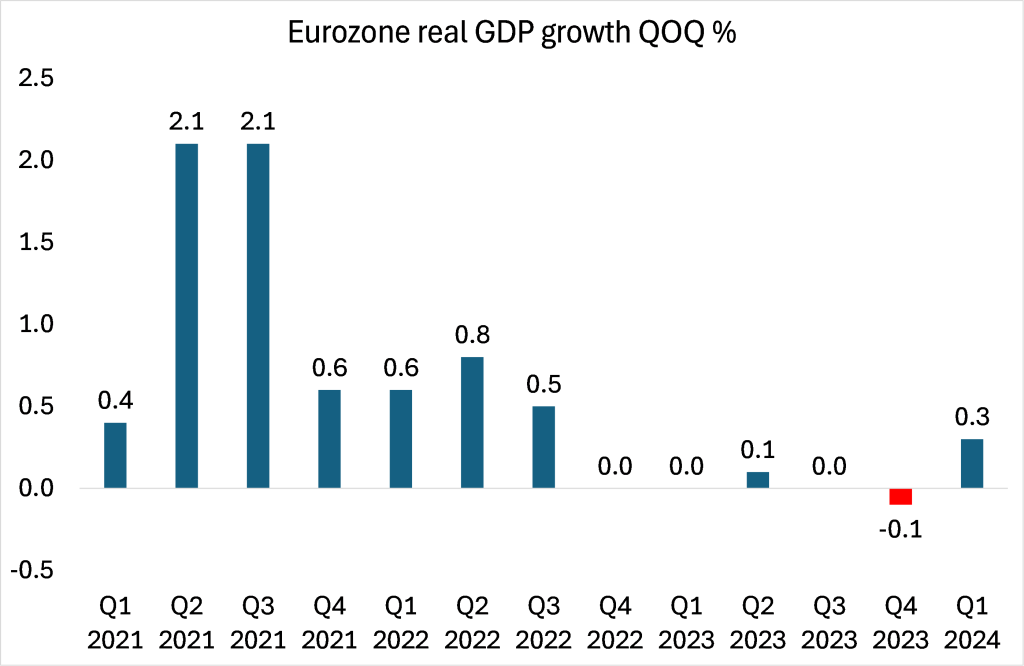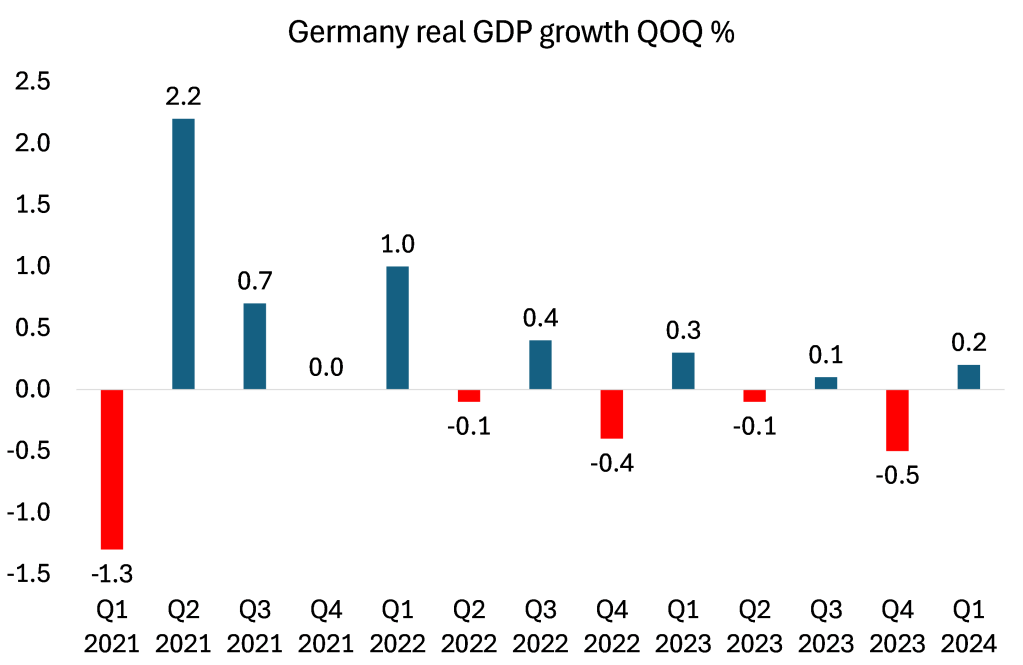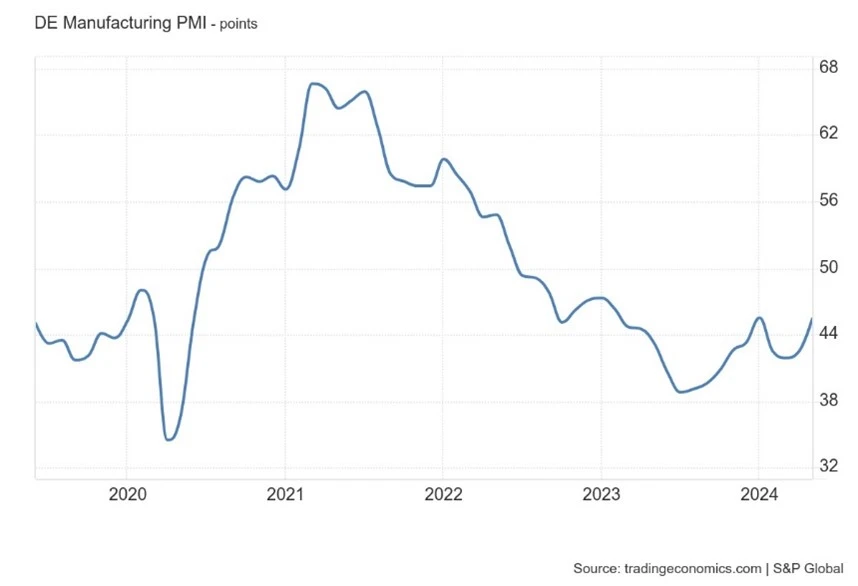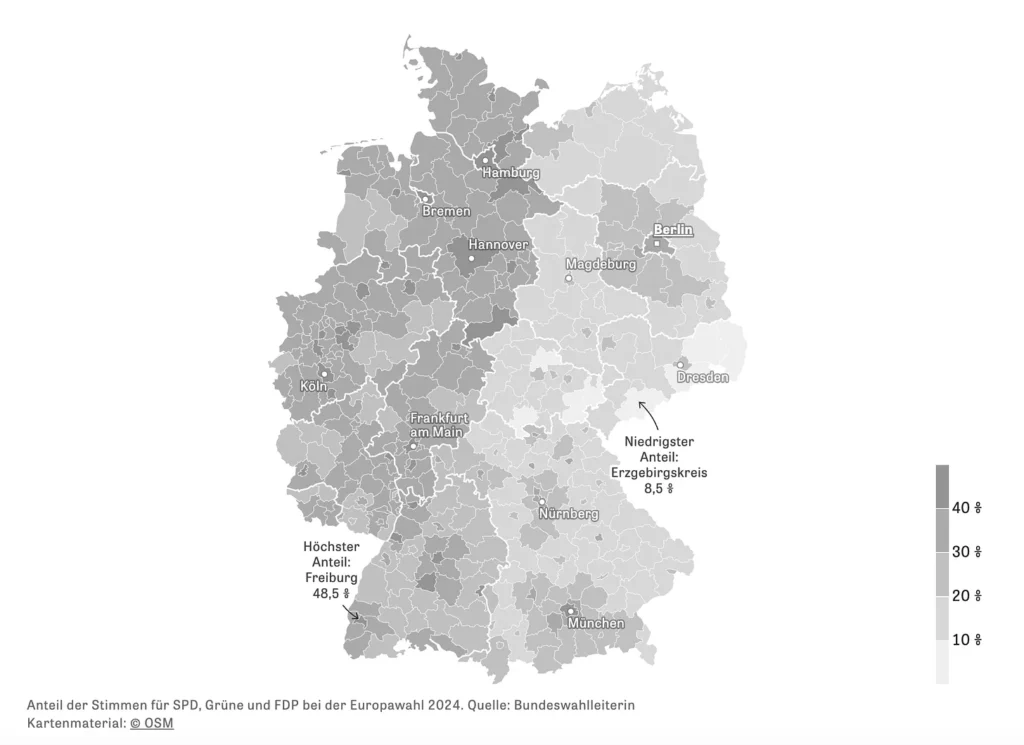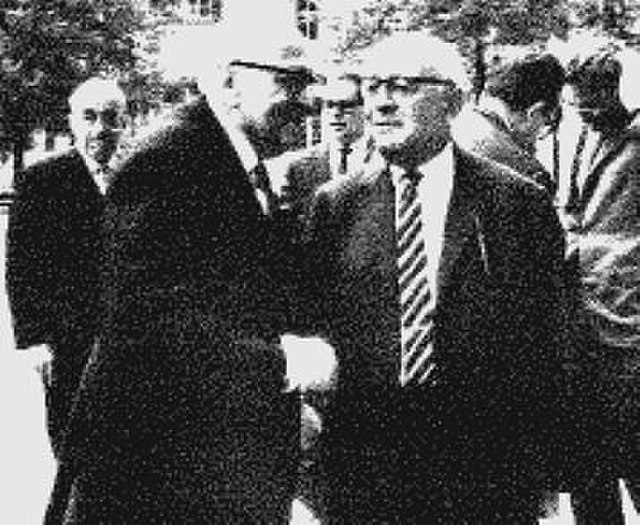The following is a transcription of an interview with Palestinian journalist Hebh Jamal by Damineh Vaezpour and Phil Butland.
Hi Hebh. Thanks for talking to us. Could we start by talking a little bit about you and the work that you do?
My name is Hebh Jamal. I am a Palestinian journalist here in Germany. I moved here around 3 years ago. Before that, I lived in New York for the majority of my life.
Mostly I write about anti-Palestinian repression and the racism which exists here in Germany, and most recently, I am working on a documentary called The Reason of State that is a deep dive into Germany’s extreme pro-Israel stance and how that stance translates on a war against Palestinians not only in Palestine through material support, but here at home as well. I am working on this with my colleague, Tom Wills.
Why did you move to Germany?
This is more of a personal thing. I moved when I married, as my husband lives here.
When it comes to racism and anti-Muslim racism, how would you assess the situation in Germany compared to the one in the US? Are there any similarities or parallels?
There are very strong similarities when it comes to racism, especially institutionalized racism. In educational institutions, there’s always a pro-Israel stance or an Islamophobic perspective.
But day to day it is very, very different. I have never seen such rampant anti-Palestinian hatred and racism as in Germany. They are trying to criminalize every part of the Palestinian identity, whether it is the flag, our kuffiyah, or our national liberation slogans. I have never seen the extent in which a state is willing to pull its resources to criminalize its own citizens and residents.
Everyone from the media to educational institutions to heads of state to local politicians personally make it their mission to demonize the Palestinian perspective and anything to do with speaking about the rights and humanity of the Palestinian people. I haven’t seen it exist in the way it does anywhere else, except Palestine itself.
So talking about racism and repression, you were recently invited to speak at Heidelberg University. What were you supposed to speak about and what happened?
I was invited by a professor, together with a colleague from our organisation, Zaytouna Rhein-Neckar Kreis. We were invited to talk about the Palestinian perspective. I concentrated on how the media is manufacturing consent to genocide, how they criminalize the Palestinian identity, and what the representation of Palestinians looks like within the German media. It’s ironic because the lecture wrote itself, and that’s what happened. I was targeted by Zionists and the pro-Israel media. The lecture wrote itself.
In October, I made a video attempting to put the events of October 7th into a historical and sociological context. My analysis was, essentially, when Palestinians have been under brutal occupation and siege for over 75 years, it is inevitable that people will use violence as a response.
Weeks after I made that video I actually deleted it because I didn’t want it to be taken out of context. I wanted to point out that there is a historical development leading to the presence of militant resistance. And this history can not be left out in the understanding of the factors and dynamics that have culminated in these events. Nonetheless, Zionists uncovered the video. It seems like they recorded it then and saved it for later on, which I think is interesting in and of itself.
There was one Zionist student who put it on social media and scandalized the situation. Within a matter of one day, a lot of local news media picked it up. I was called a Hamas fanatic, a supporter of terror, and a Jew-hater.
There was no mention that I have family in Gaza, no mention that I was talking about a very specific situation. There was no sort of clarification, of course, and I made it a point not to explain myself. I didn’t want to be put into a situation where I would have to explain myself.
I received this news within a matter of days of learning that my children’s great grandmother, who was older than the state of Israel herself, literally died in a refugee camp from dehydration. So my state of mind was – I’m sorry for my language –fuck that. How are they in any sort of credible and moral position to accuse me of supporting terror when all that this government and the state of Germany have done was consistently support terror and the brutal massacre of Palestinian people? Not only support it, but justify and trivialize their deaths. So if anyone is trivializing the deaths of innocents, it’s this state and it’s the Israeli state.
I will not censor myself, and I want to be able to make political analyses both as a journalist and as a Palestinian about the current situation and make use of my freedom of speech and my press freedom. This is my right, and I will make use of it.
I released a statement saying this on my Instagram.
On the day the presentation was supposed to take place, the University cancelled the event. They tried to save face because, I assume, that they didn’t want to be seen as cowering to Zionist pressure, so they said they were going to create a bigger event with different people. But Palestinians, like me and Mahmoud, were not to be invited.
I gave a clarification of my statements. They were happy with my clarification. I told them, I normally don’t do this, but for the sake of the professor who invited me, I will. They were happy with what I wrote. Then after the Zionist storm, Bild Zeitung picked it up, and a CDU politician pressured them into closing it. The rectorate said, we don’t tolerate antisemitism, implying that I’m an antisemite.
You say, people stored the information and used it later. Do you think there’s a reason why they’re going for you in particular?
Before, they didn’t have a reason, which is why it didn’t come up. But now it’s because I’m being invited to universities. I’m seen as someone who has experience speaking about this. My work is being picked up by people internationally. Students within the universities want to hear from a Palestinian journalist who has seen what has taken place. I have experience with activism, and I am a witness to genocide.
It is scary for Zionists when you get legitimization from German institutions. If you yell on the streets and stay on the streets, they don’t necessarily care about you. But as soon as you are seen as a professional, that’s when they draw the line.
Before, my work was in English. It was more for an international audience. I wanted to report about the things that took place in order to put pressure on these institutions. But now that I was actually invited to one, that was a big change that they want it to stop in its tracks.
Now if you search my name, you see these articles. And I can’t sue for slander because that’s the power that the German media has. They can interpret things how they want. They don’t have to ask for clarification. Journalistic integrity in this country is in the trash can. They’re not going to uphold any of the standards that would exist elsewhere. And then they claim that they’re the beacon of freedom and democracy here, which is bullshit.
Students for Palestine Heidelberg, which was formed very recently, organized a demonstration on our behalf, protesting the university decision. So instead of speaking in front of 20 people, I ended up speaking to 250 people. I was able to actually do my presentation there at the Uniplatz in Heidelberg.
You have been accused by the Jüdische Allgemeine and other newspapers of justifying the Hamas attack as an act of decolonialisation. Could you elaborate further on the content of your statement?
What’s interesting is that generally the media and universities never ask for clarification from an Israeli head of state. They never ask for clarification from an Israeli journalist or student or activist about their trivialization of the massacre of over 40,000 Palestinian people – 20,000 of them children, the new number just came out.
I already explained a little about why I refuse to put myself in a position where I have to explain my thoughts. If this was some sort of academic discussion – where we had a very nuanced conversation about military resistance, or what are acceptable forms of violence, or what violates international human rights law, and what does not – I would be more than happy to explain that video.
But currently in Germany, we do not have the space to say anything, so any response would have been turned around to paint me as a terrorist supporter, a Hamas fanatic and a Jew hater. However I respond, it won’t change the outcome.
Living in this country, there is no nuance when it comes to the idea of Palestinian liberation. They are still debating the phrase “from the river to the sea.” It is that elementary. So how could we even have a nuanced conversation about militant resistance and about what Hamas is and what they aren’t?
I want to emphasize again, over 30 members of my family were killed in this war. The rest are all refugees living in tents. None of them have any sort of future. They describe levels of violence and brutality that I can’t even begin to comprehend.
What I can never understand is that in order to find these posts, they had to go through hundreds of posts on my feed of me talking about my dead family, about people that I love, about the trauma of war, about the violence that took place. They had to scroll through hundreds of posts in order to find one they could scandalize. It shows how much no one gives a second thought about the Palestinian people. They don’t care, like our blood is cheap.
So they could talk day in and day out about the hostages and about dead Israeli and Jewish people. But it’s like there’s some sort of monopoly on suffering when it comes to one victim. I want to focus on the people whose stories no one hears. No one will hear the perspectives of the Palestinians killed in Gaza or of the prisoners languishing in what has been classified by the media as Israeli “death camps.”
Was there any possibility for you to respond to these accusations?
No. Not from the Jüdische Allgemeine. Not from Bild. The Mannheimer Morgen said they tried to call me.
In the Mannheimer Morgen article, it said “she trivializes the murder of Israelis.” And at the very bottom, they say that in her statement she also said that 30 members of her family were killed. Even when they do mention that Palestinians are real people who die, it’s at the very bottom where no one reads.
Can you elaborate more on the aftermath of your life following the accusations and media attention?
I have to be honest. I try my best to put on a strong face to talk about this and not self censor. I consistently go to protests, so I don’t give them what they want. But at the end of the day, it sucked. It sucked a lot. Because you know that there’s not going to be an opportunity to defend yourself. Any response is going to generate the same sort of hatred.
I was in a position where I feared for myself. I don’t go outside by myself because all of the Zionists in Mannheim know my name. A city council politician called Chris Rihm gave comments to newspapers about how I am a radical not to be invited to speak anywhere. He called me a “trained rethoriker.” He got more votes than nearly every other politician and actually represents where I live.
So my own city council member is antagonizing me and has come to protests to try to provoke me. The cantor of the Jewish synagogue here in Mannheim has also written to the university to get me disinvited and canceled. He has called me not just a Hamas fanatic, but also an Islamist. This is a religious leader who is widely respected in Mannheim.
It’s nervewracking. It’s scary to go outside by yourself. I don’t feel comfortable. I feel like I’m consistently filmed or followed. I was honestly trembling when I gave my speech at Uniplatz following the cancellation, though of course I didn’t want to make that known. But I had a very physical reaction to this whole situation
There’s this one person who’s part of the Deutsche Israeli Gesellschaft and the Zionist movement in Mannheim. I saw him on my way to Uniplatz that day, and I told my husband I don’t know why I have to always see people who hate me all the time. And then, ironically, he was going to Uniplatz to protest against me and to film me – to paint me as a terrorist.
It’s so interesting, because there’s all this fear about these radical activists and Islamists, and they’re literally on the front lines provoking us. You guys aren’t fearful of us. You want to marginalize us even further.
If it wasn’t for The Left Berlin and people within the Palestine solidarity movement, I don’t know if I would have gone to the next protest. It’s because of the support of my comrades and people around me that I was able to persist and go on.
Can we talk a little about resistance? In the current framework of resistance, can there be nonviolent resistance? Has there ever been a successful example for nonviolent resistance movements?
I have to be clear. I’ve always preferred and have been a complete advocate of nonviolent resistance. I have marveled at the activists within Palestine and the diaspora who have been at the forefront of what Palestinian resistance looks like. And it has been nonviolent resistance.
But again, I am in no position to condemn violent resistance. I wrote a piece about Ibrahim Al-Nabulsi, a military resistance fighter in Nablus who was killed at the age of 18 by the IDF in a raid. The piece argued that we shouldn’t just mourn activists who are acceptable within the margins of society. We also should mourn the Ibrahim Al-Nabulsis of our time. Children decide that there is no future for them if these raids on their cities continue, if they don’t know whether they will be able to go to school or wake up the next day dead.
And as we’ve seen, hundreds upon hundreds of Palestinian men, women, and children have been killed in raids in the West Bank – Nablus, Hebron and Jenin being the epicenter of such raids. Most recently, you’ve seen a Palestinian civilian on a tank being used as a human shield after being shot by an Israeli soldier.
So the whole point of me writing that piece was about how we need to be able to hold space for thoughts like that, for people like that, who feel that they have no other choice.
However, I think that to be able to even exist within Palestine or within the diaspora is a form of resistance itself.
Just yesterday, my sister in law became a medical doctor. She’s a surgeon already, but she finally received her doctorate title. She’s from Gaza and lived there up until high school. To be able to do that, while your family is under genocide, while your grandmother was just killed, while all of these things pile on top of each other is incredible.
Culture is an act of resistance. Also existing in Germany is an act of resistance. So we talk about resistance more broadly. To be able to live and to remember the Palestinian liberation movement as it exists is crucial to us eventually returning to our homeland.
You have also been accused of supporting terrorism. How would you define the terms resistance and terrorism?
I think terrorism is what the Israeli state and the Israeli military is doing – the indiscriminate and systemic murder of the Palestinian people. The genocide of the Palestinian people should encompass every single definition of terrorism. There is no sign of self defense that is taking place there.
Resistance is against an occupying force. So acts against military and state actors are a form of legitimate military resistance against an occupying force, which is recognized by international law. Even in Germany, we accept that Israel is occupying the West Bank. They have the term “Occupied West Bank” for a reason. The media doesn’t want to use this terminology, but the official state terminology calls it the Occupied West Bank.
So active resistance against the occupying force, I believe is legitimate. These definitions will consistently be interchangeable. But it doesn’t concern me because when you dehumanize people to such an extent, going into what our views actually are isn’t really the aim of the Zionists.
Some argue that Israel’s policies towards the land of Palestine cannot be defined as colonialism. What’s your response to this?
I think they should listen to their own leaders and founders. It’s interesting because Zionist leaders have always used terminology to appease the imperial Western states. So at the time when Israel was founded, it was colonialism. Now it’s a liberation movement for the Zionist cause.
Actually they call it decolonisation, which is absolutely ridiculous. What is happening in Palestine – the taking of land and the ethnic cleansing and brutal massacre of the Palestinian people –is textbook colonization.
They also always understood it as colonization – whether it’s Ben Gurion, whether it’s conservative leaders like Jabotinsky, whether it’s Herzl himself – colonization was and is the terminology used when defining what has taken place in Palestine. It did not come from Palestinians, it has come from the Zionist rulers and leaders themselves.
The extent to which they take the land and how they take the land has been debated by the Zionists. Some wanted more fierce military actions while others wanted more steady political solutions that usually led to bigger settlement building within historic Palestine. It’s ridiculous because Zionists are trying to co-opt the language of today, because colonization today is seen as bad. Instead of listening to the leaders of yesterday, they try to create new terminology.
I know that there is a lot of German academia that says that Israel is not a colonizing force. They justify it by saying that the Arabs sold the land to the Jewish settlers. But that was a very minuscule part of how they actually obtained the vast majority of Palestinian land.
A lot of it took place through the Nakba, which as we know, was the ethnic cleansing of 750,000 Palestinians. The whole idea that Arabs left of their own accord was totally debunked by Ilan Pappé, the Israeli-Jewish historian, in his book, Ten Myths About Israel. This did not happen, and was a complete fabrication by the Israeli State.
It’s a futile attempt because there are too many facts and testimonies that go against such a fabrication of history.
What are your future plans? You’ve talked about the film that you’re making with Tom Wills. Could you say a bit more about that, and what other projects you’ve got for the future?
Of course I’m still writing. I consistently write and have a few pieces that will be published soon. But the big project I’m working on is called The Reason of State. It’s a documentary that Tom and I have been working on to try to shed light on what is taking place in Germany and why the brutal reaction to activists looks the way it does.
It’s not just material support for Israel in aiding its genocide. It’s also bringing the war against Palestinians here at home. That’s really what this film is about. It’s mostly about the real people, about the movements, and how they overcome this.
Not everyone’s heard about your case. If people read this interview and want to do something about it, how can they support you?
One major thing is that Zionists and the Antideutsche movement are very good at putting on pressure by showing themselves in numbers behind their screens–by sending emails, writing to universities and exerting pressure that way. It would be great if we try to do something similar in emailing the rectorate and expressing dissatisfaction with my disinvitation.
That is something that I think would be really appreciated, to show that it’s not just the Zionists who take time out of their day to present their case. There should be pushback against these administrations that censor Palestinian voices.
If anyone would like to join us in building such a campaign, you can contact us at team@theleftberlin.com or contact Hebh via her Instagram or Twitter accounts.
